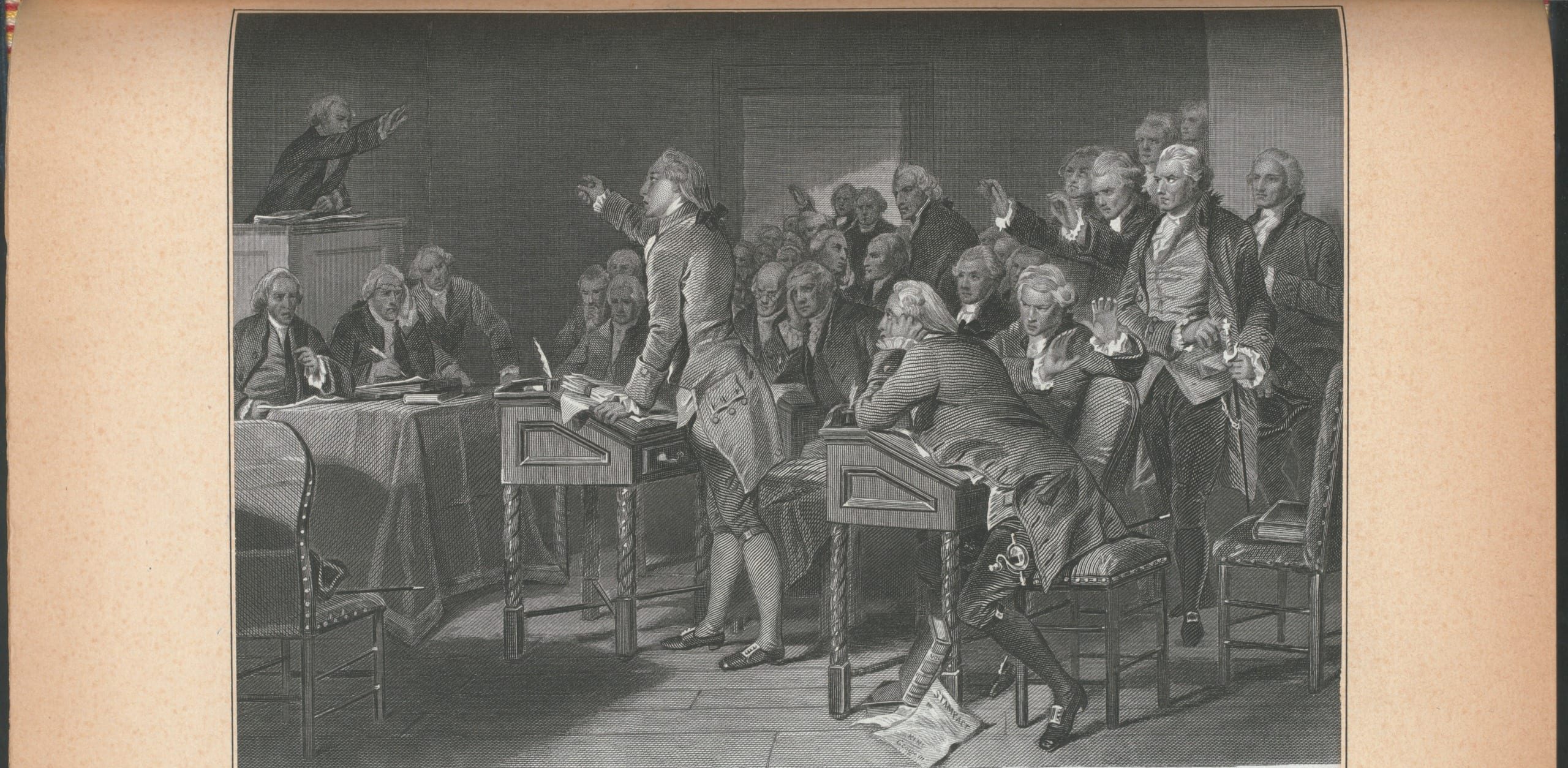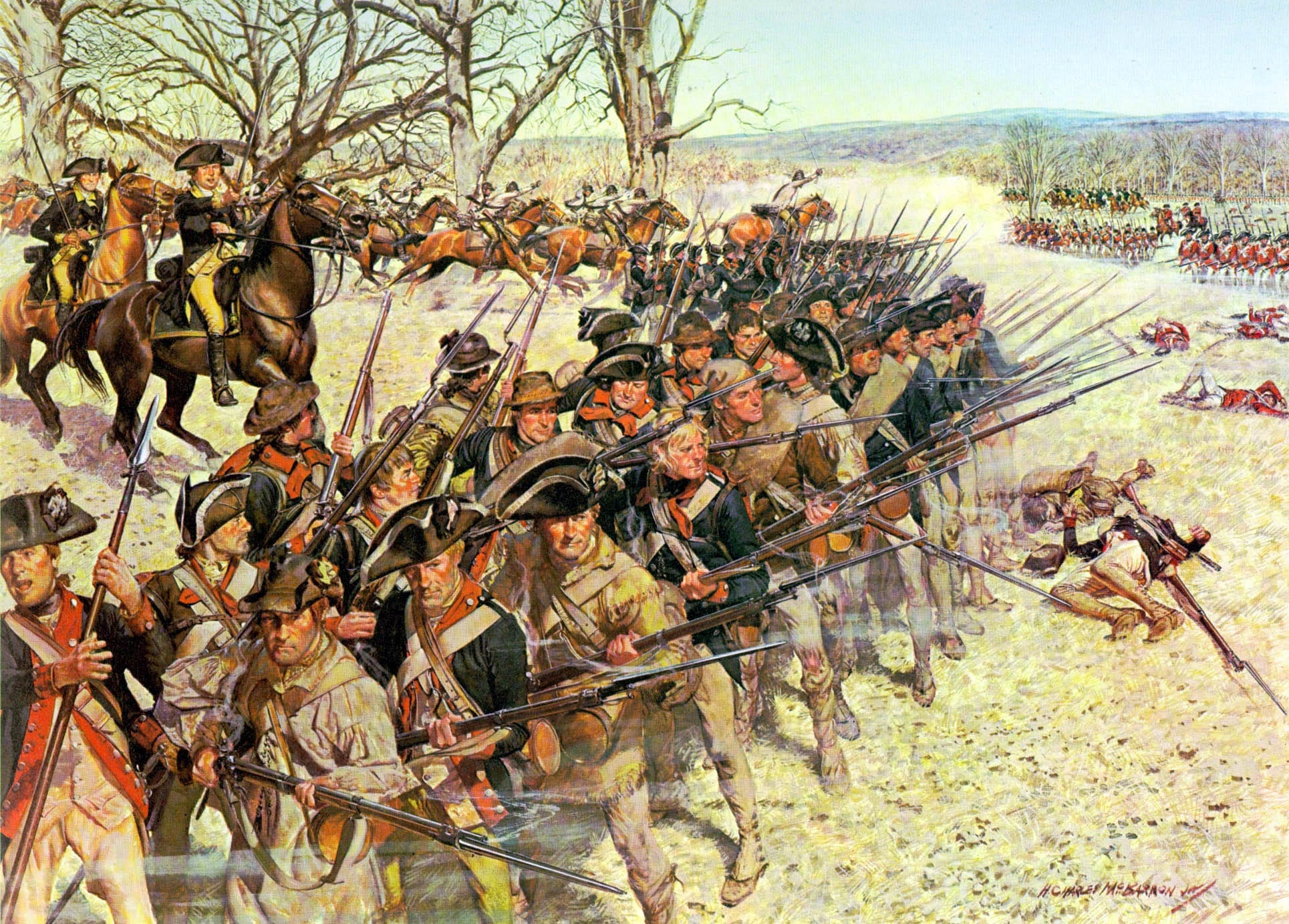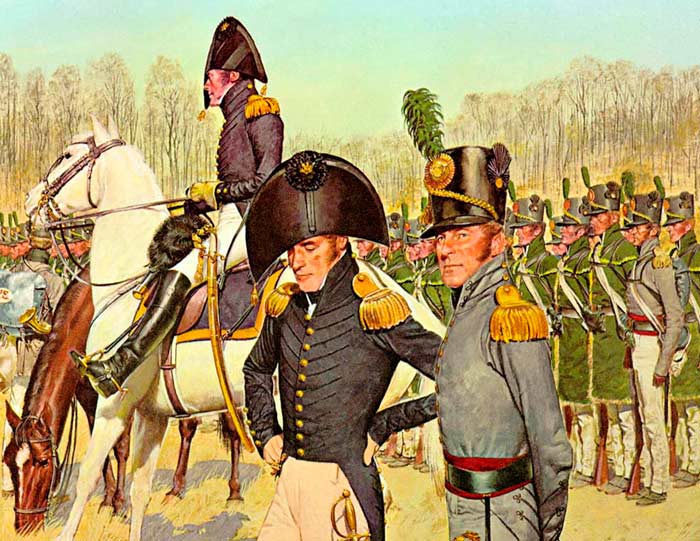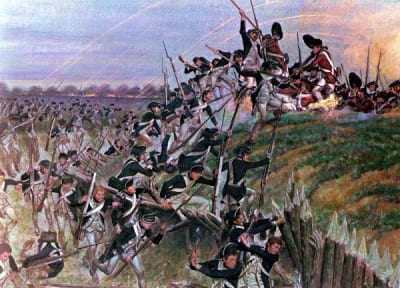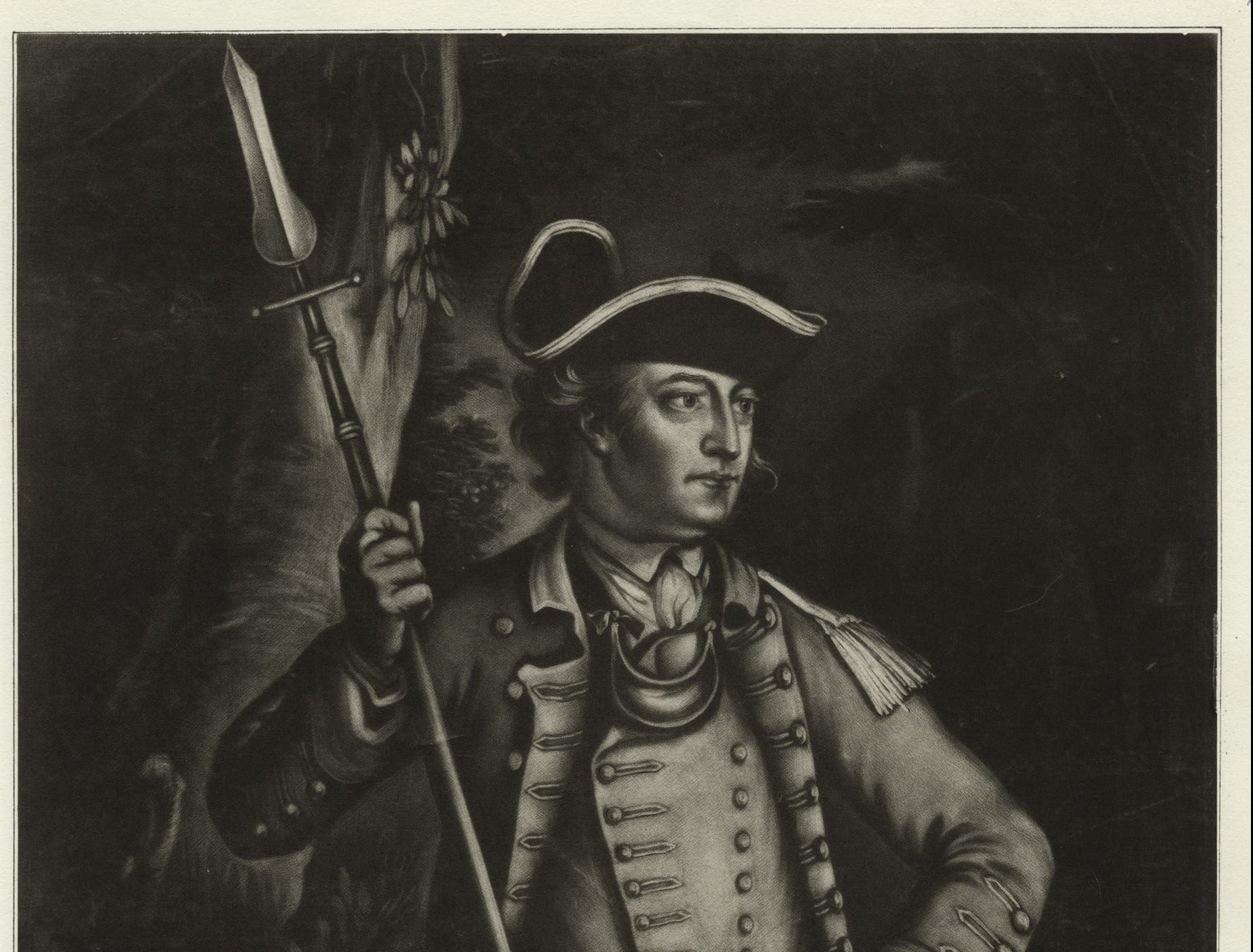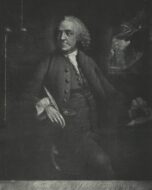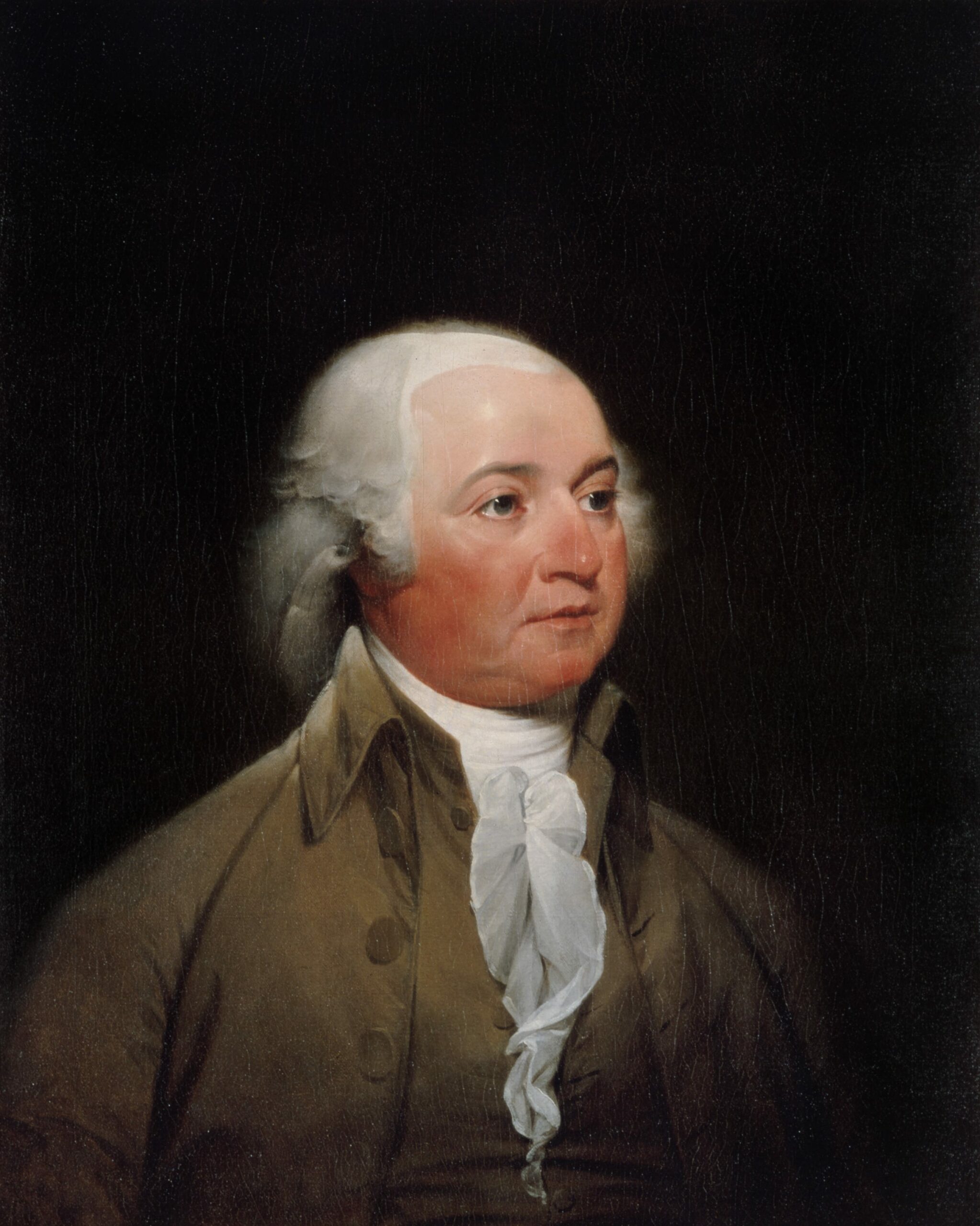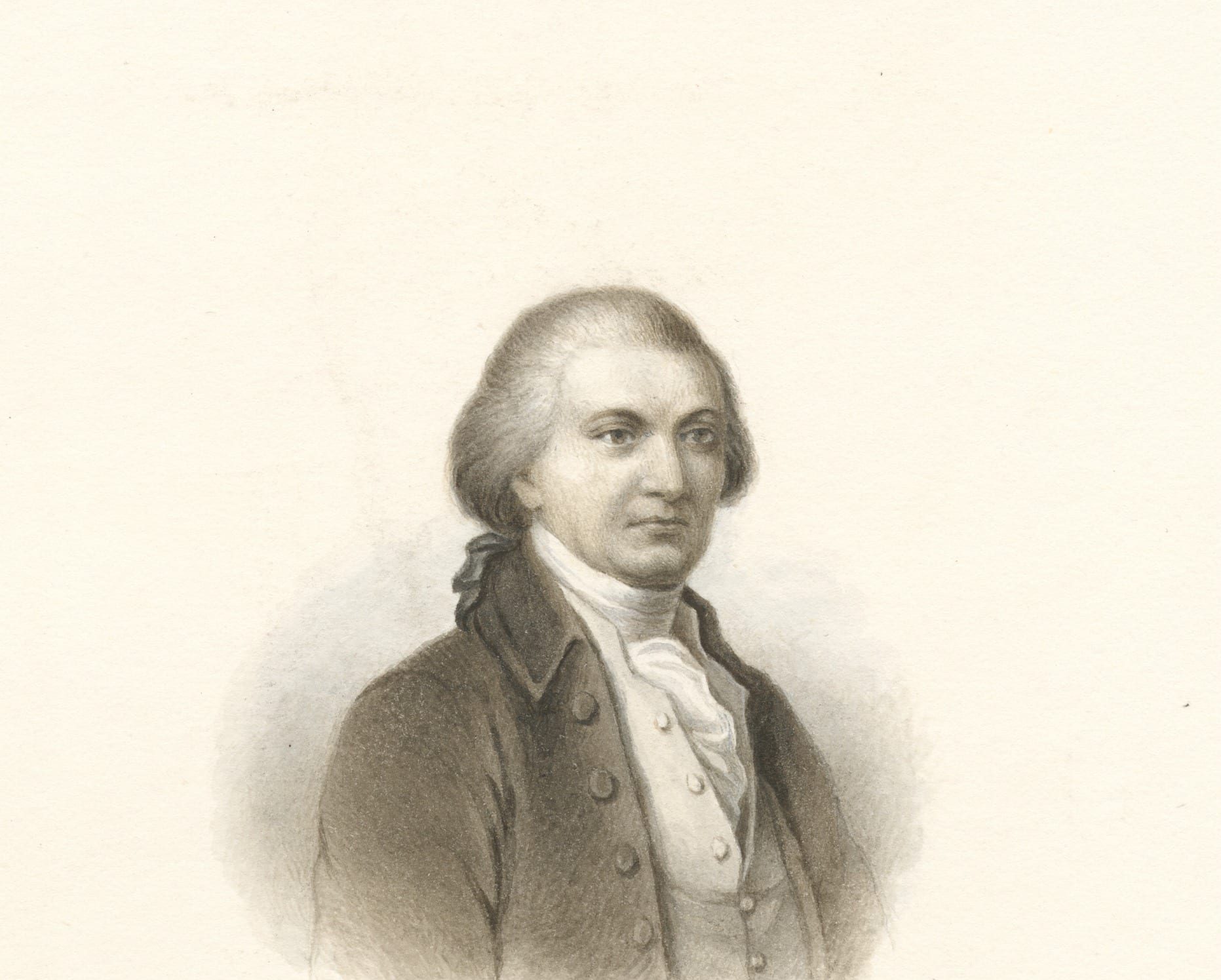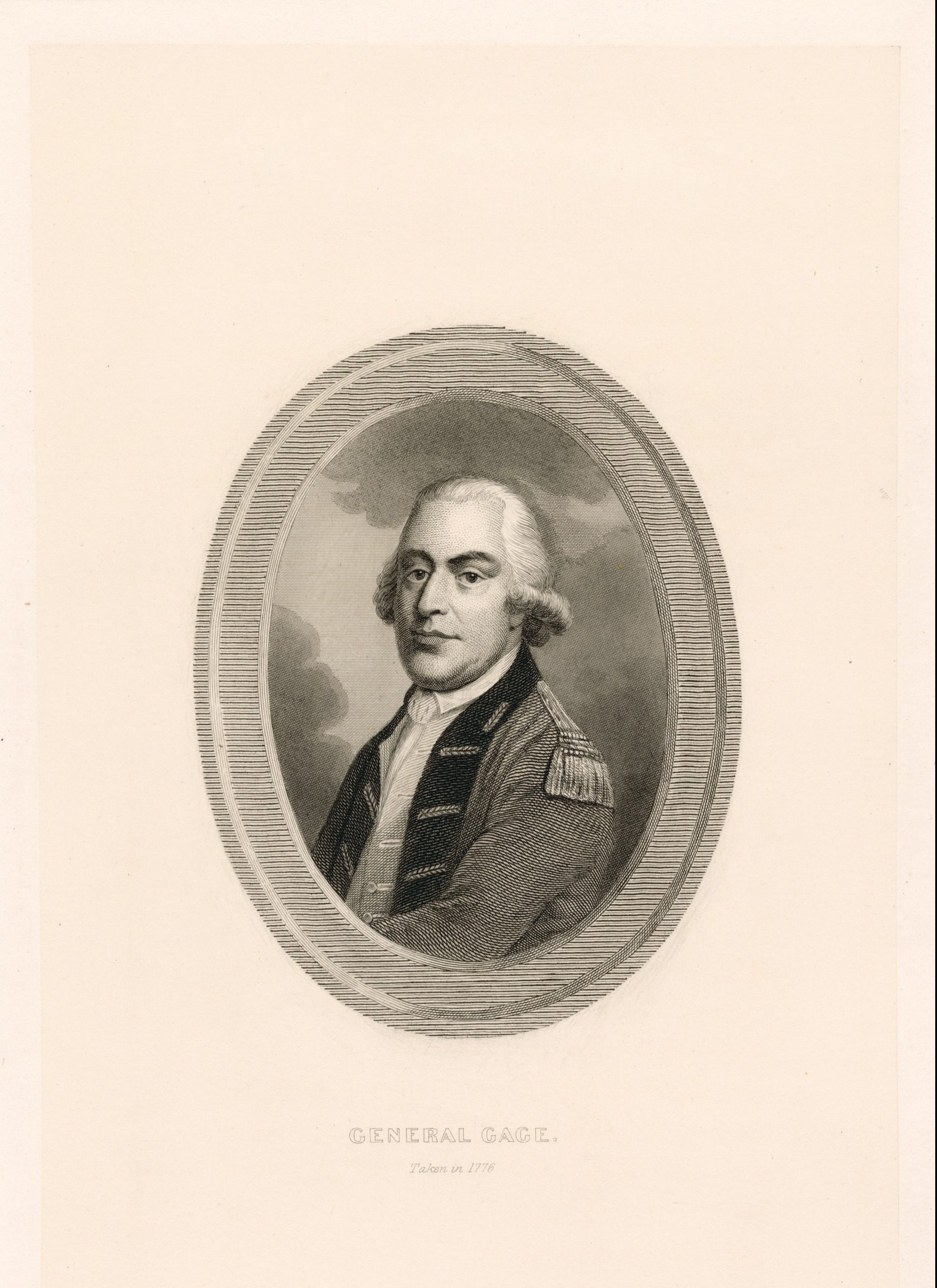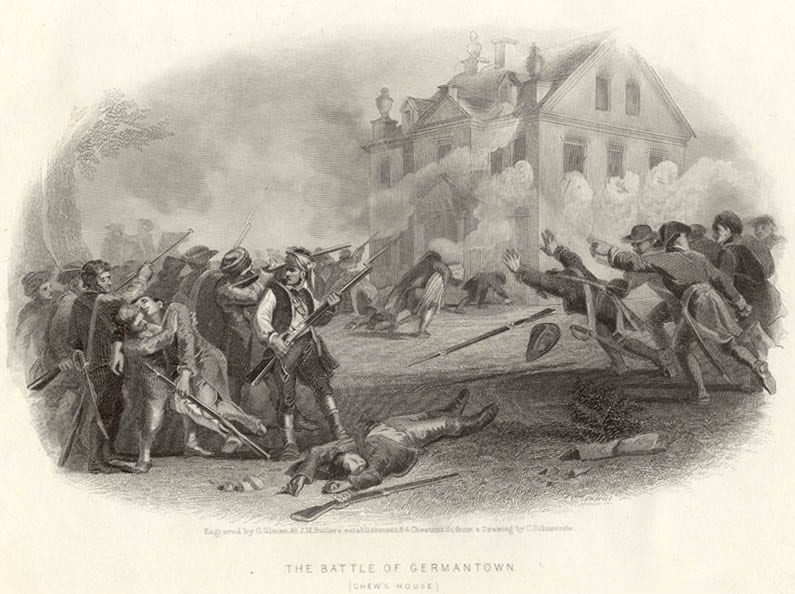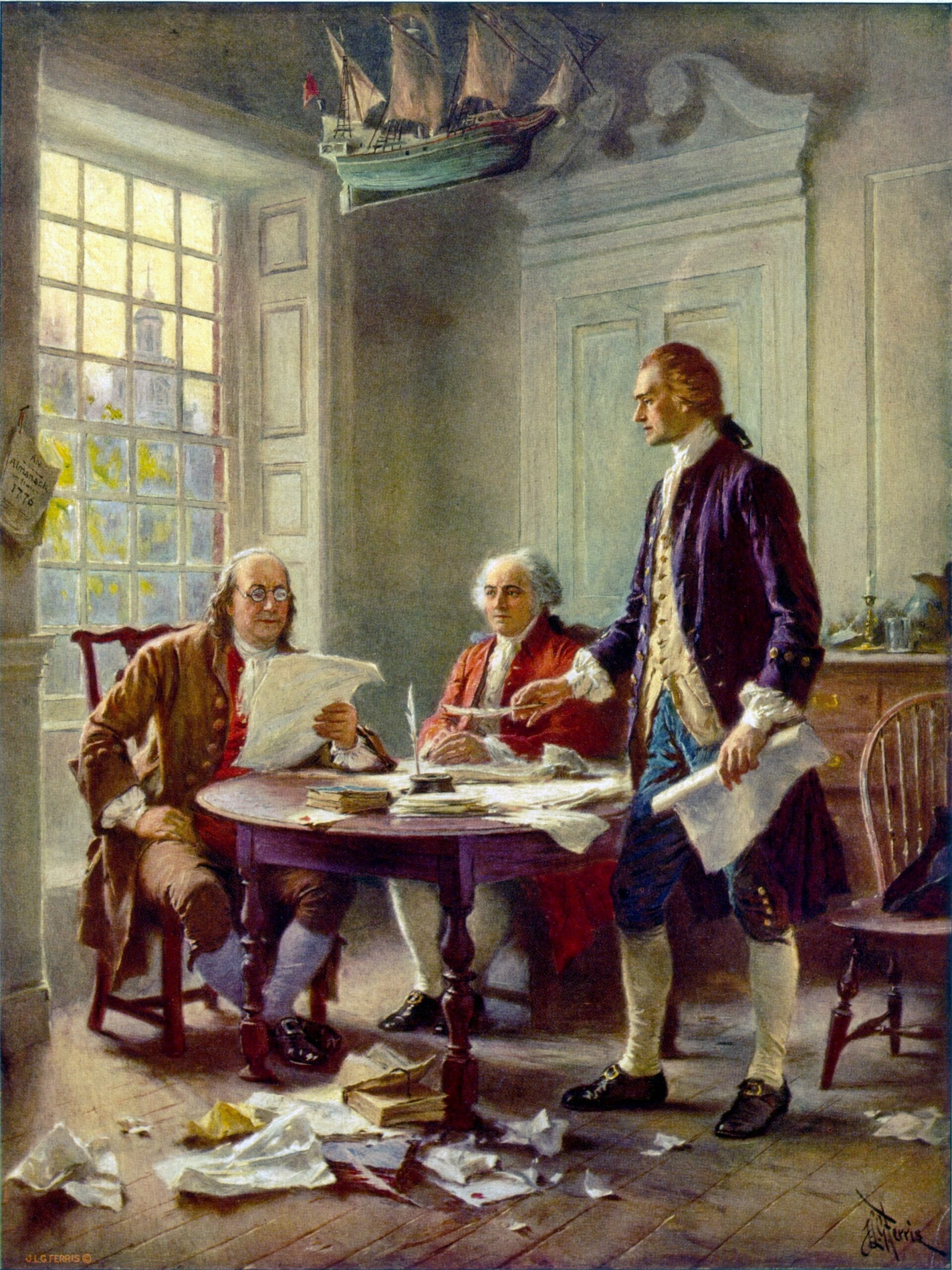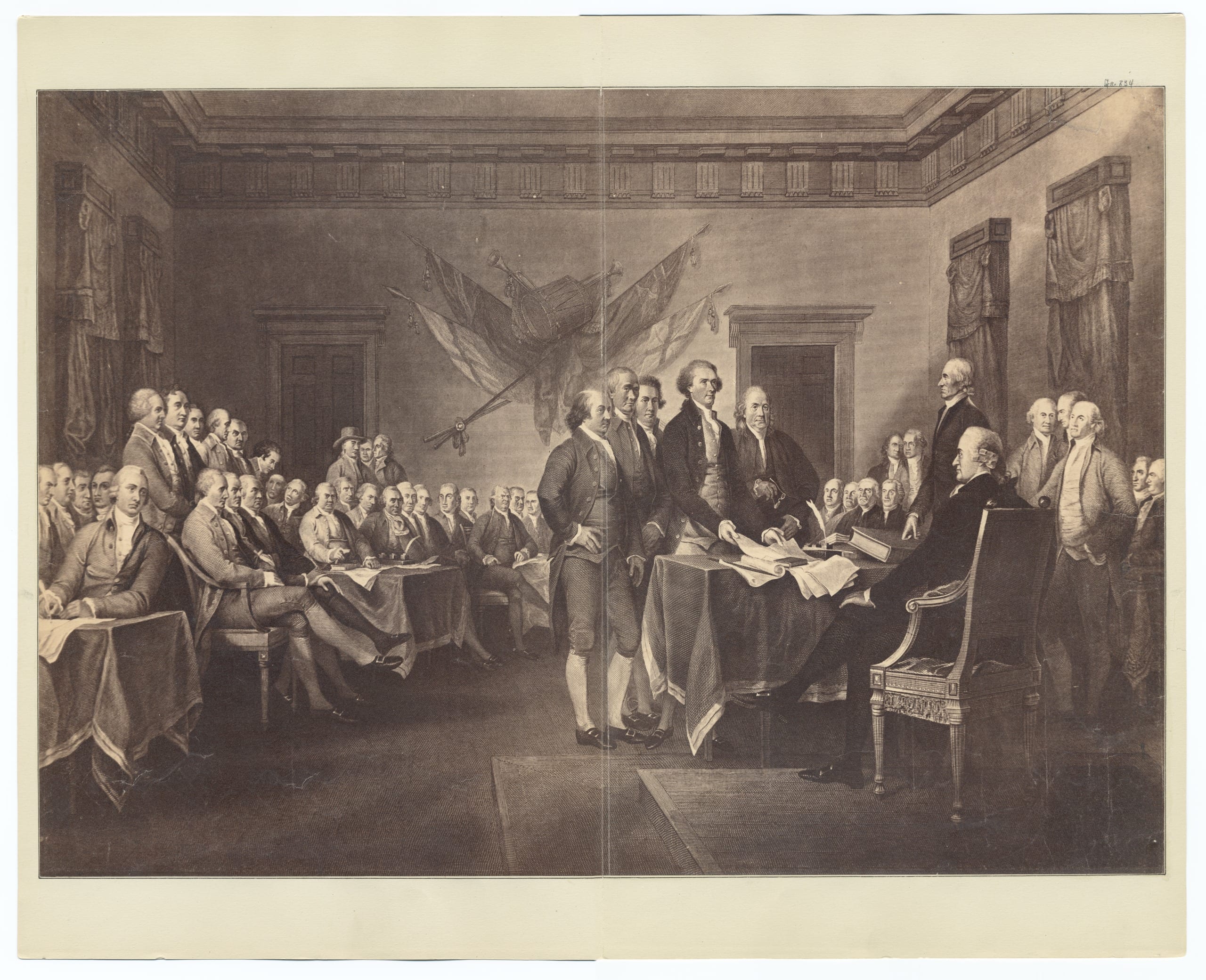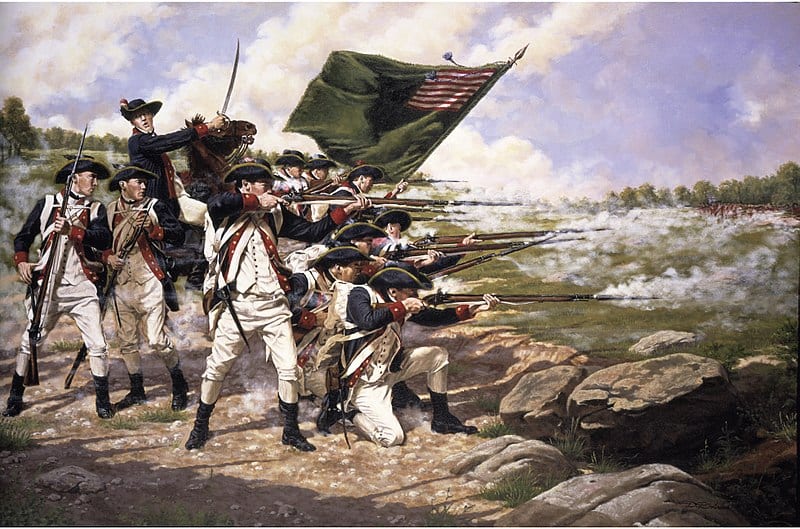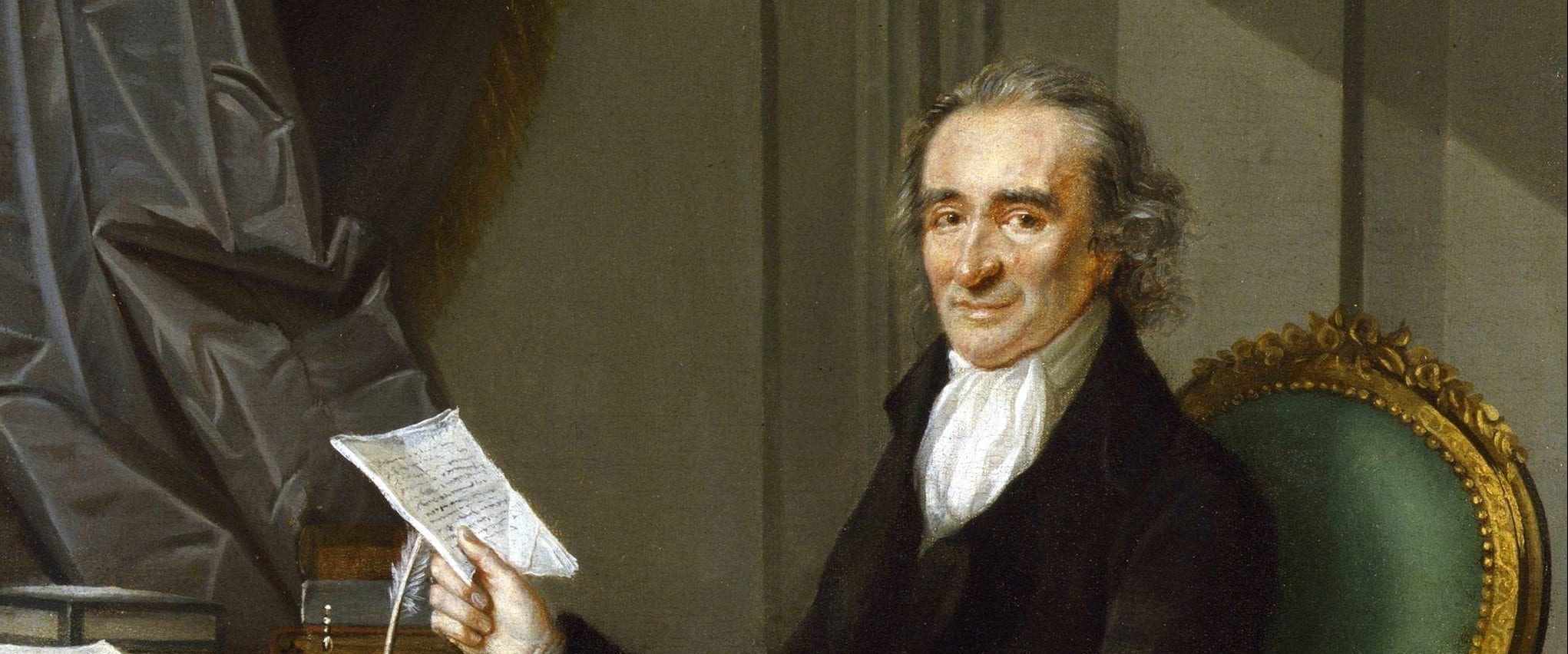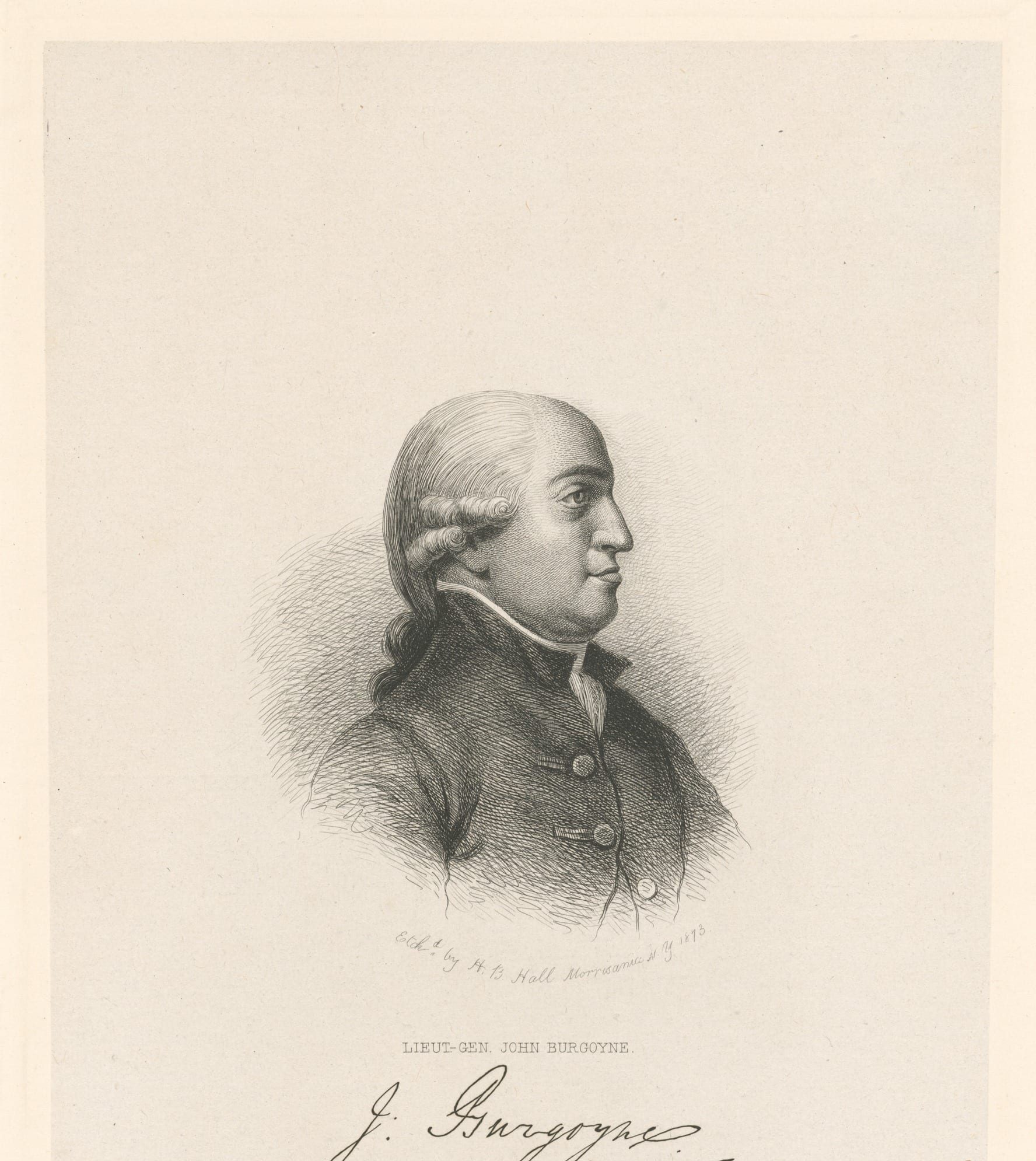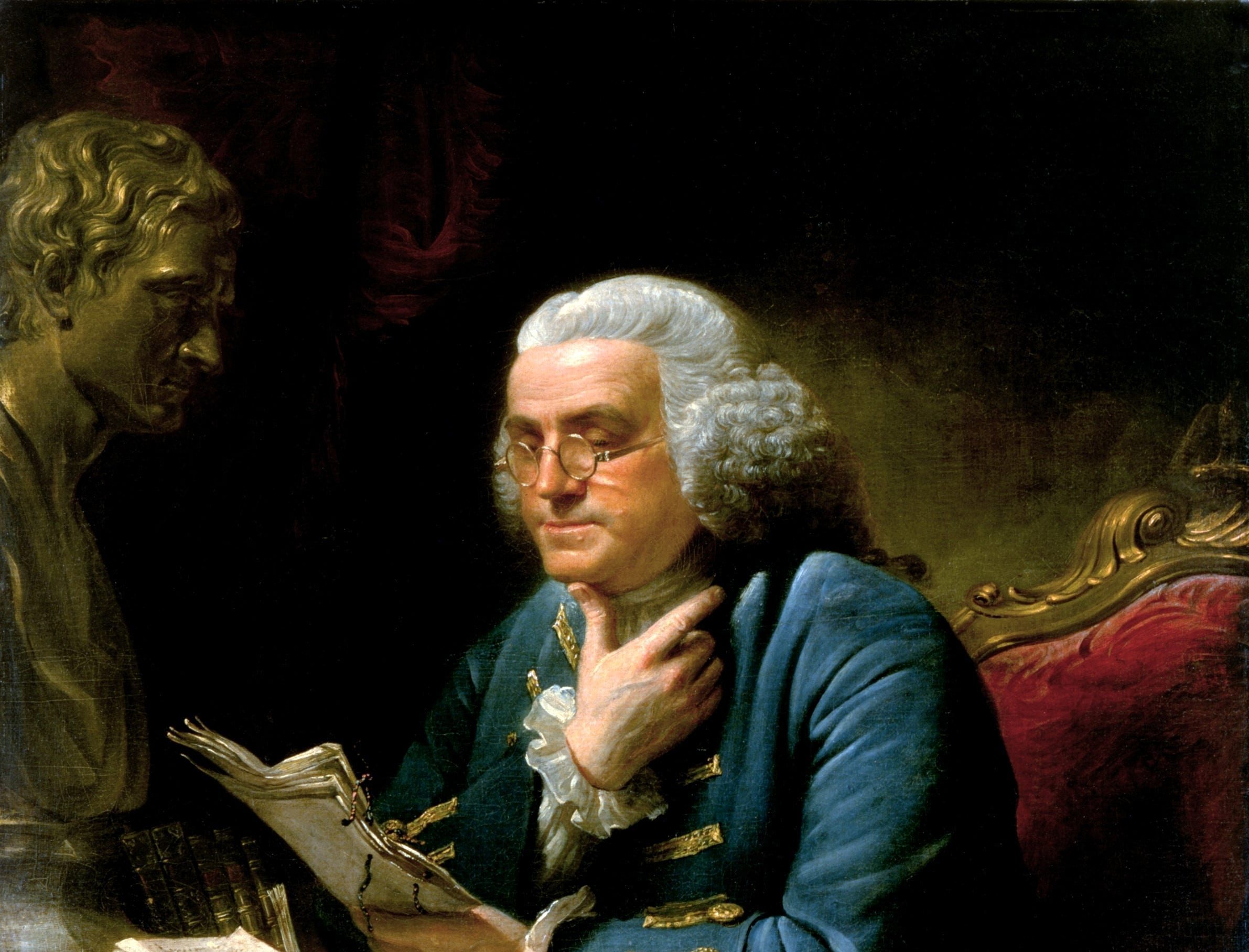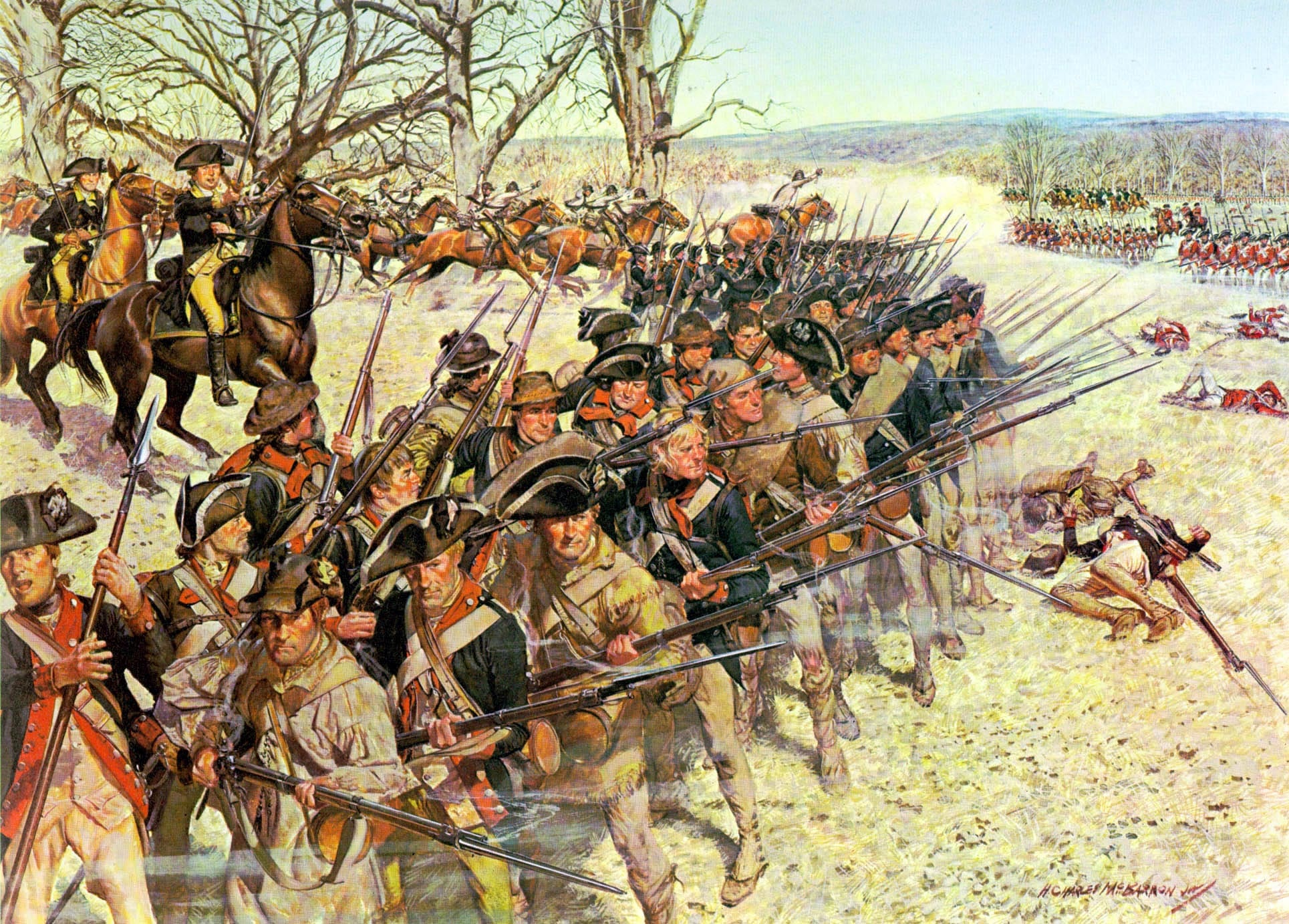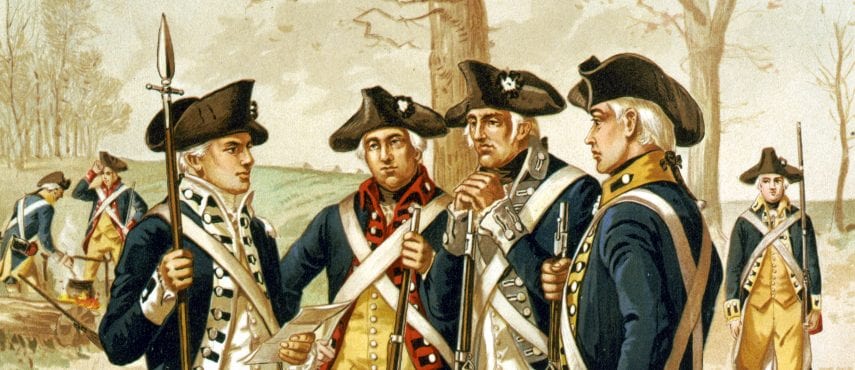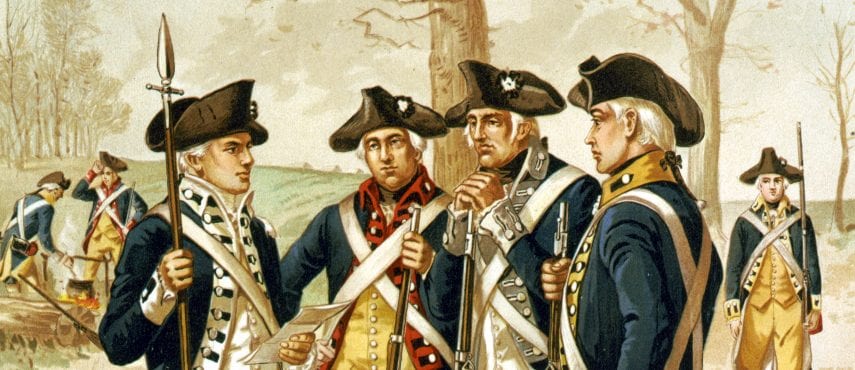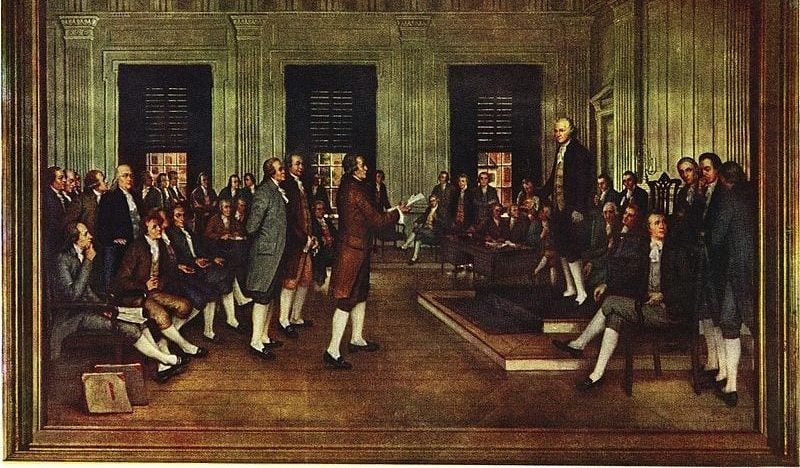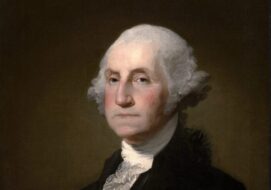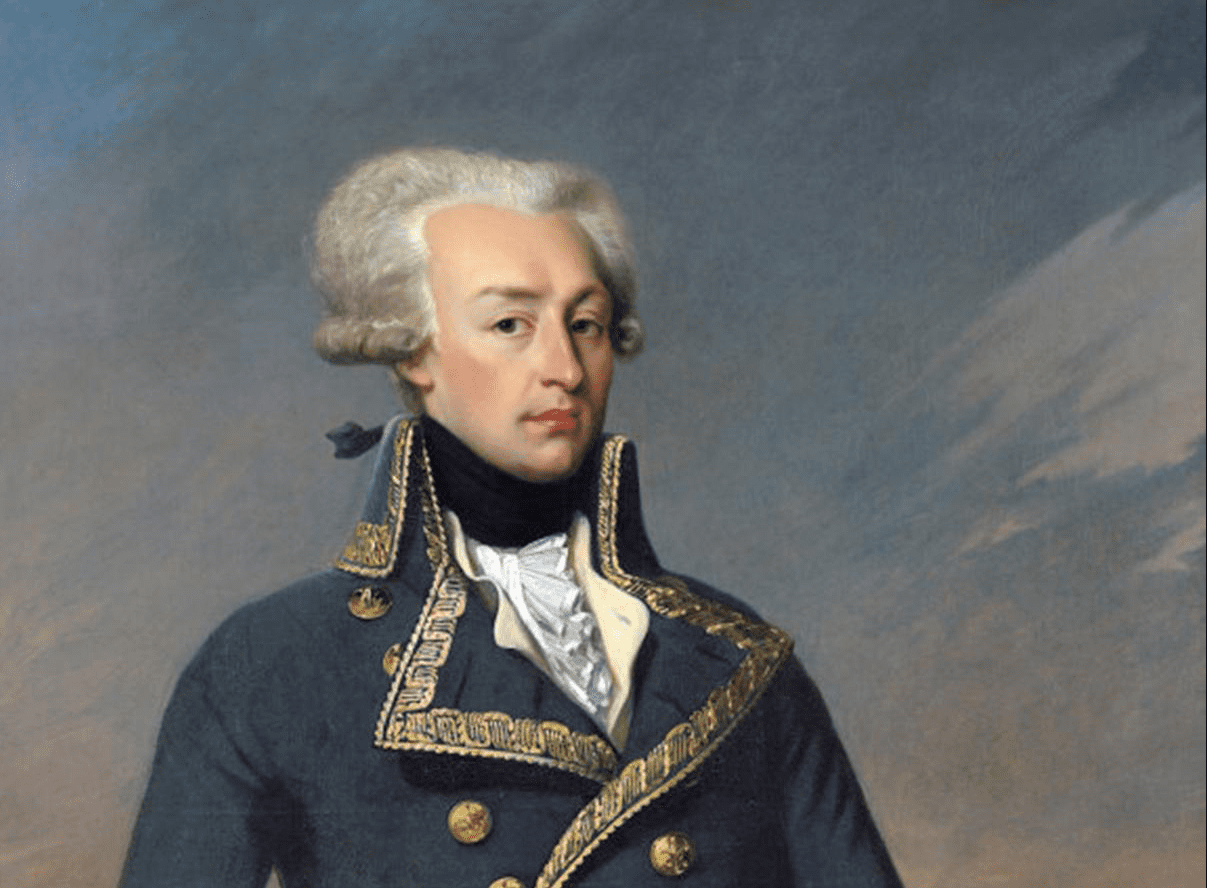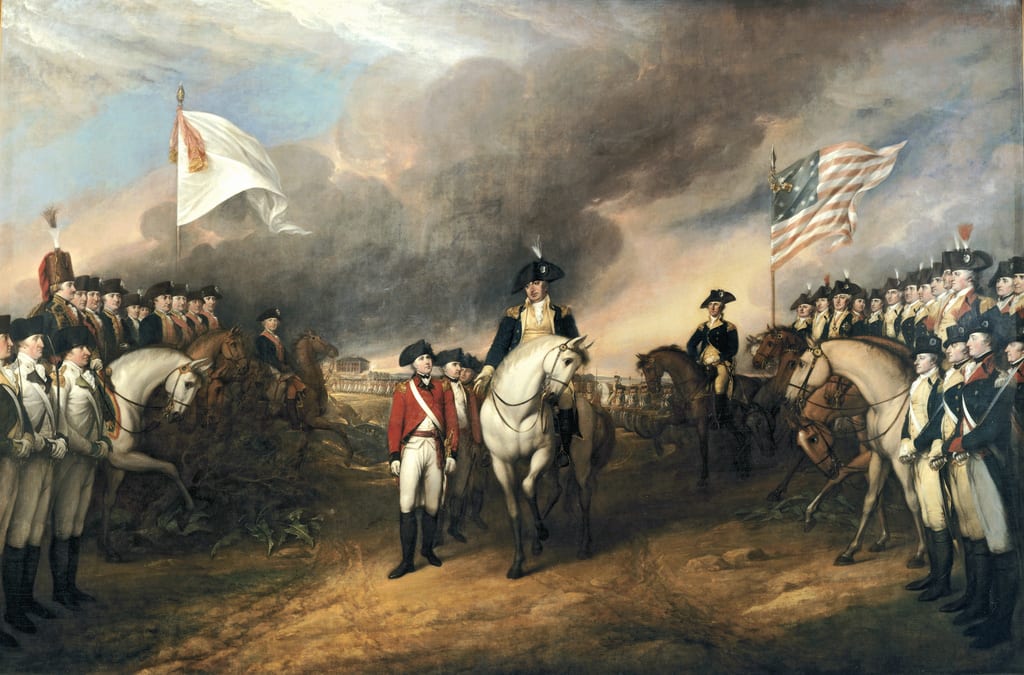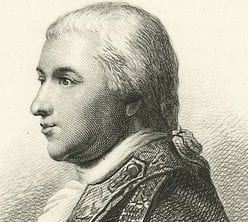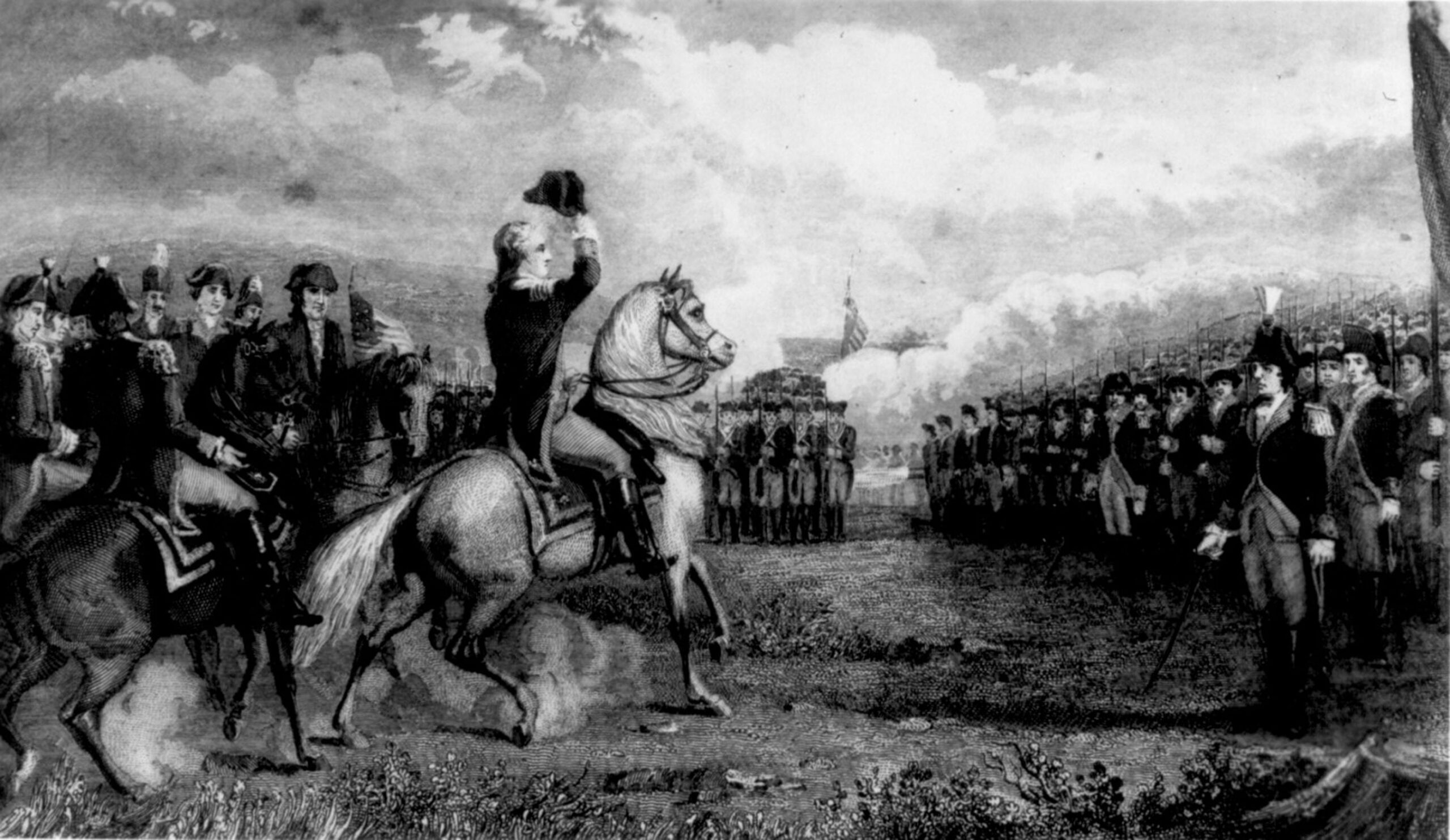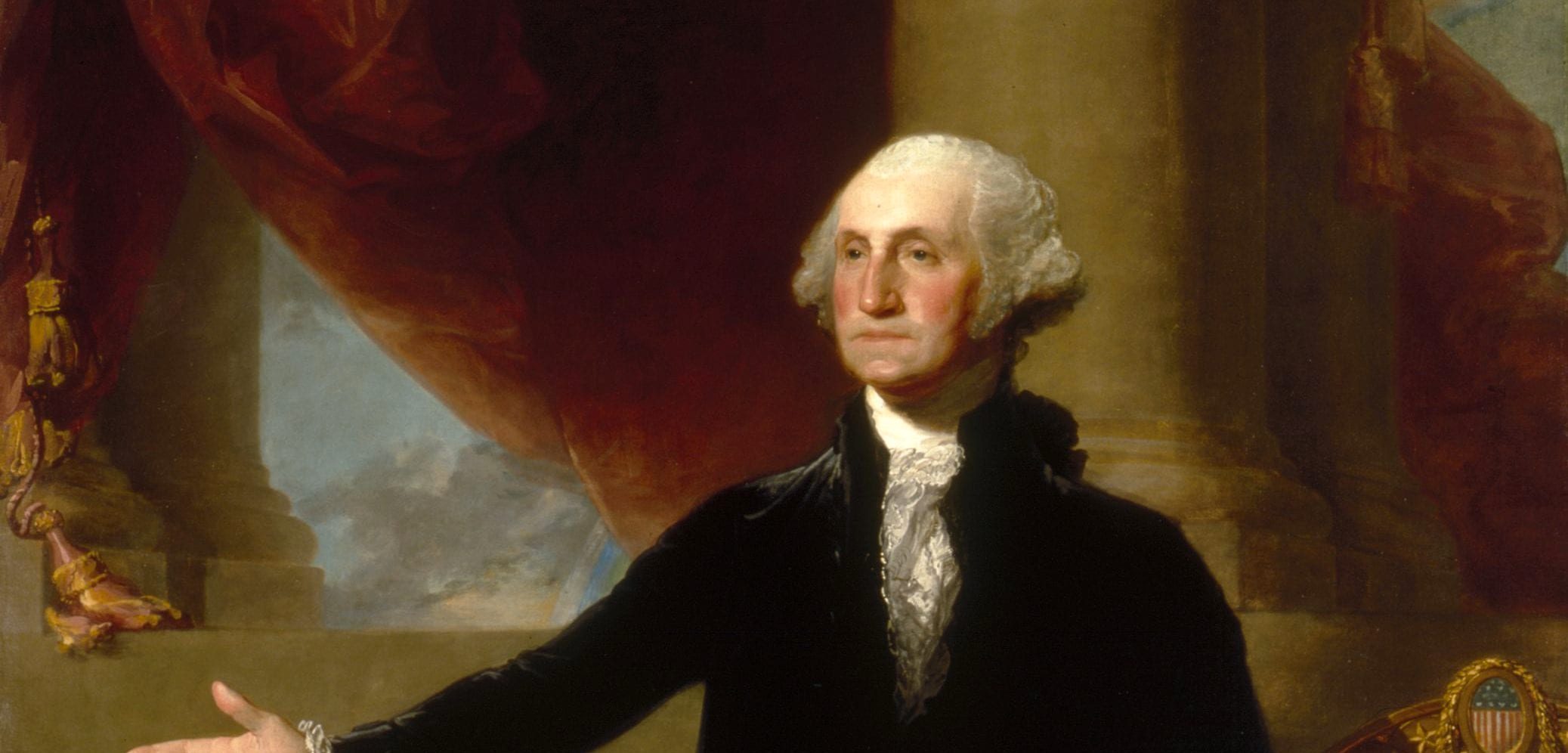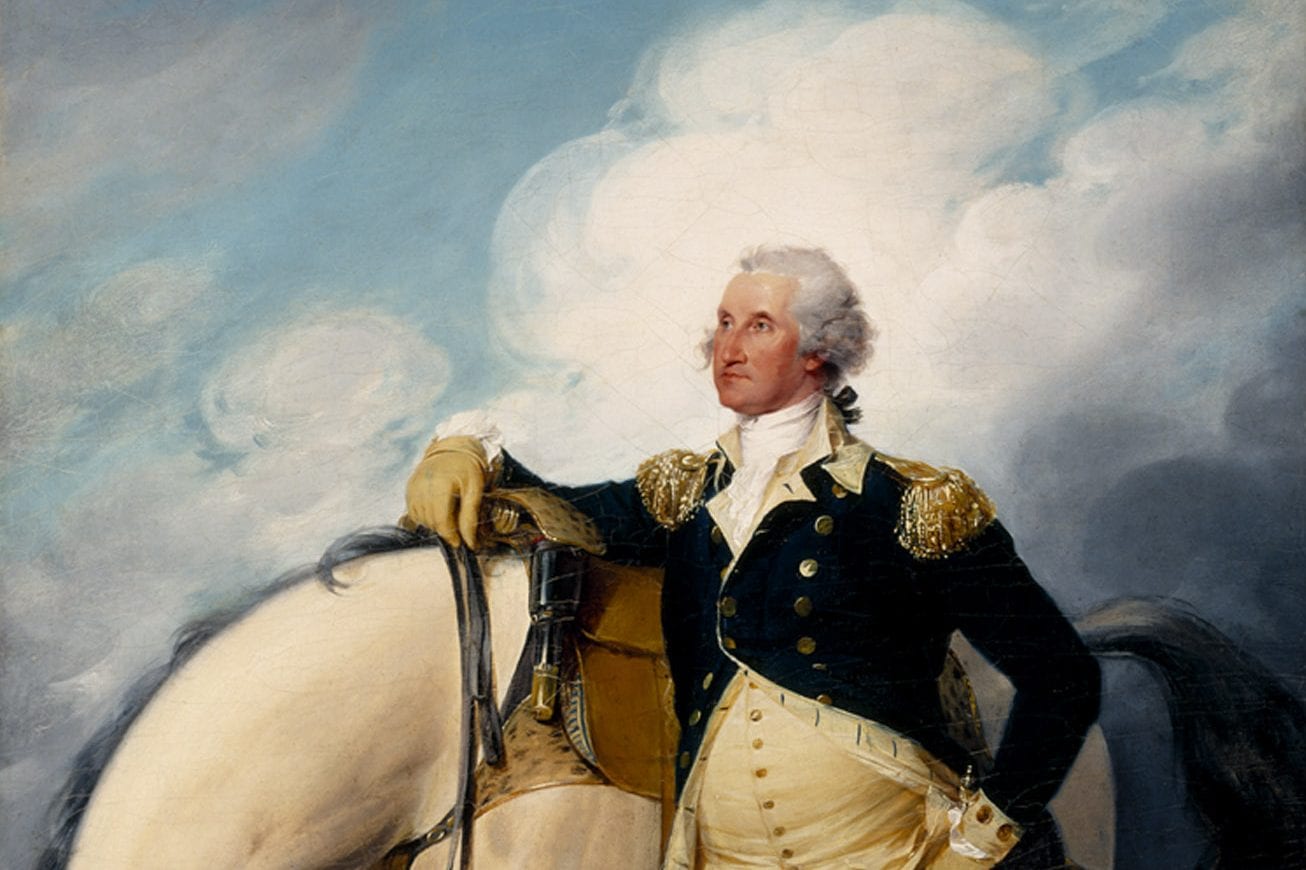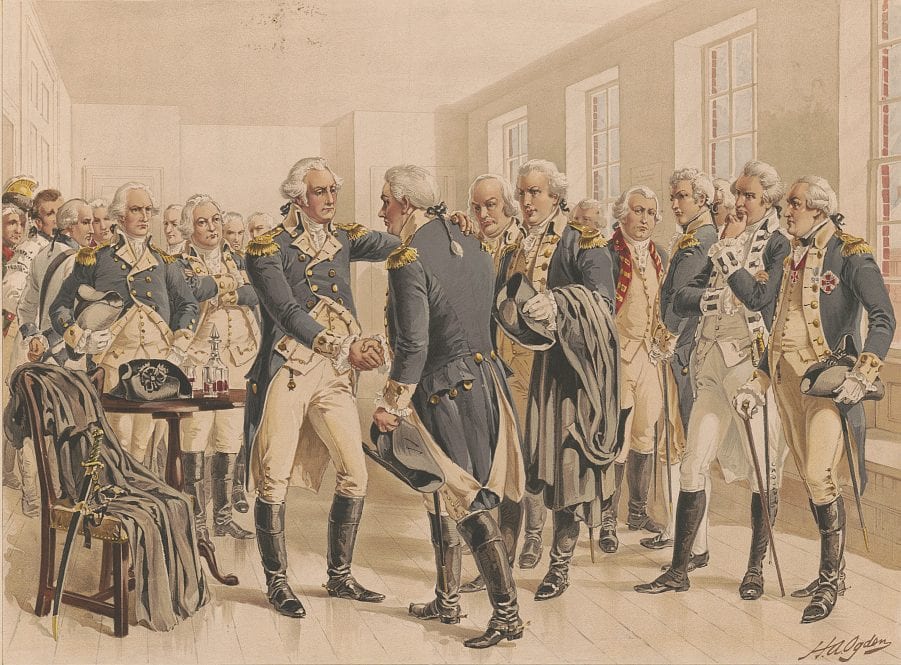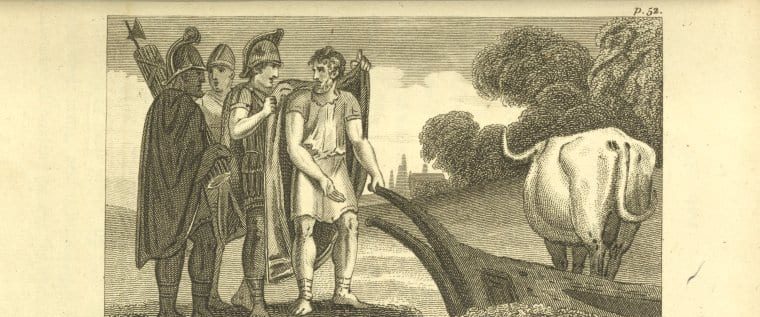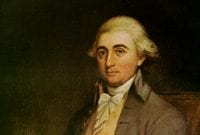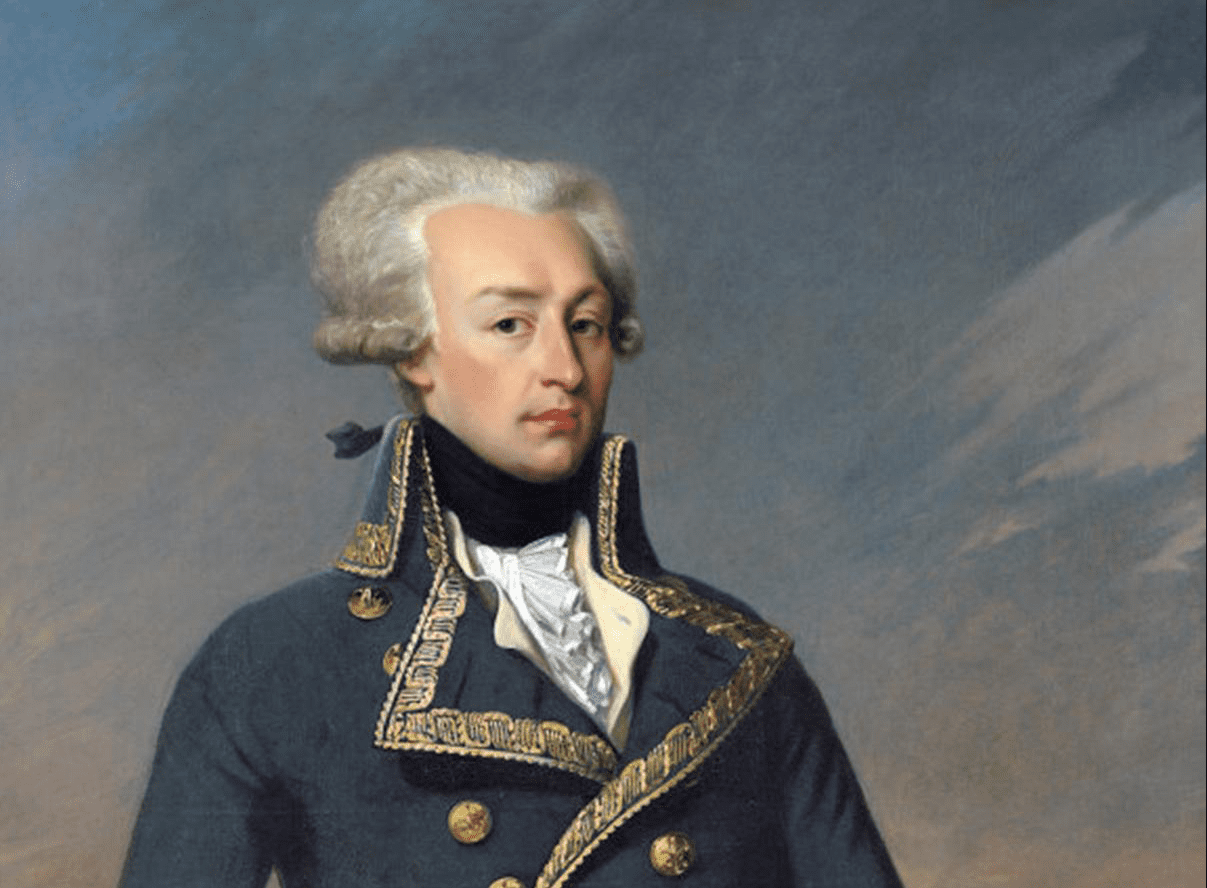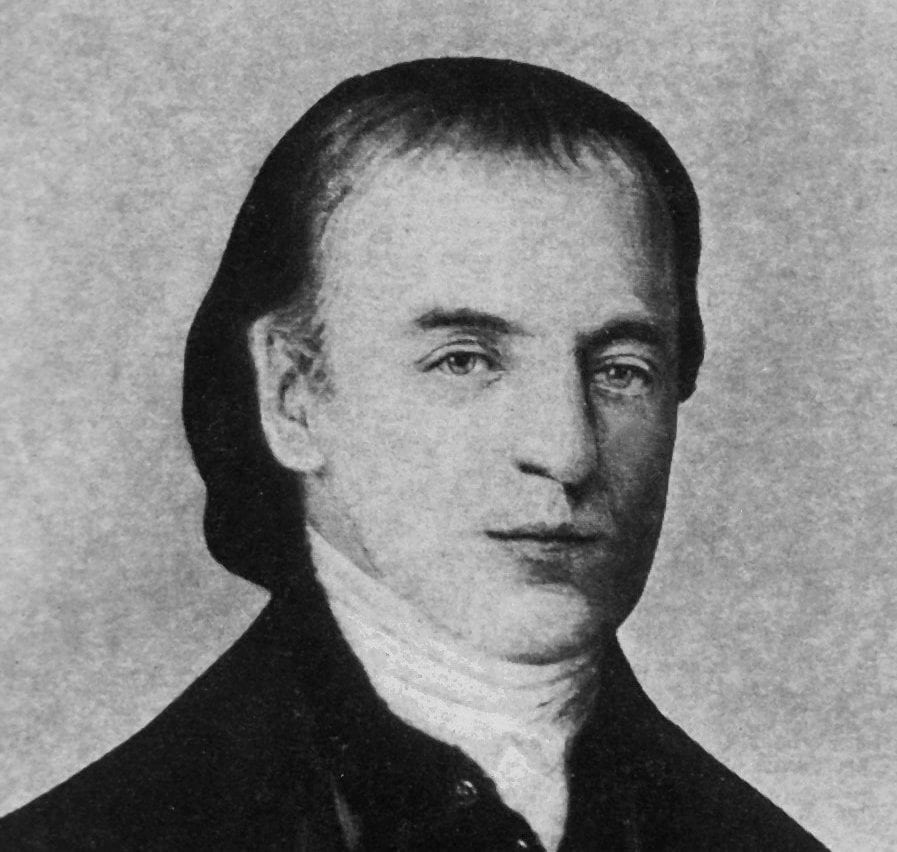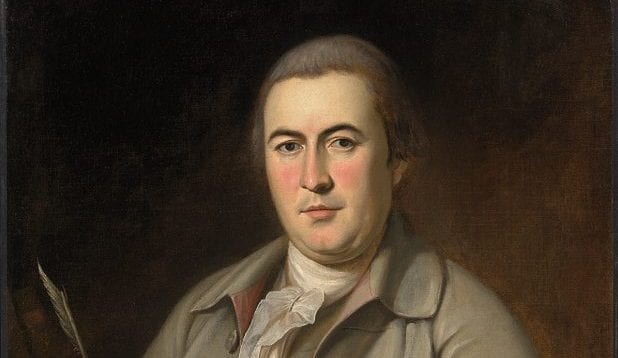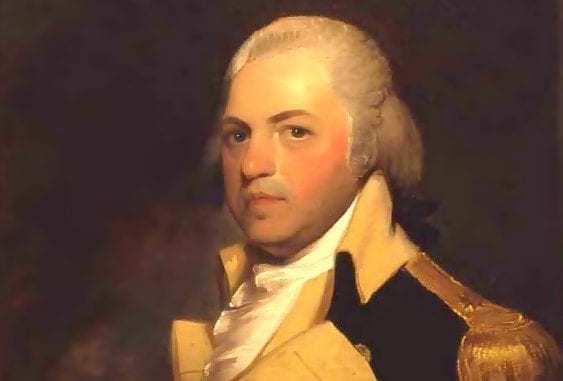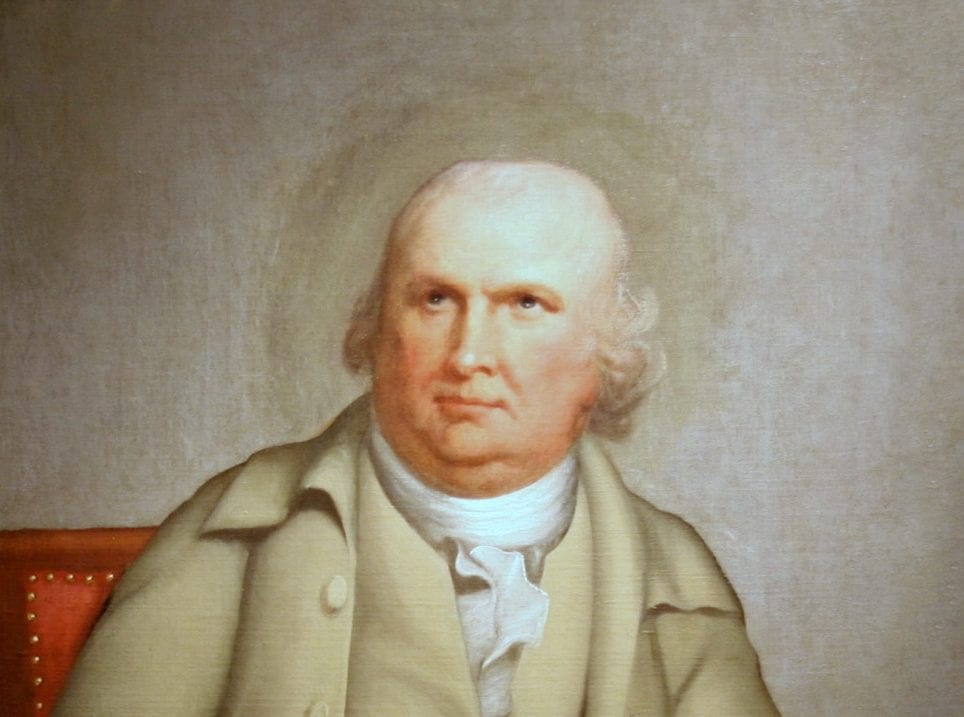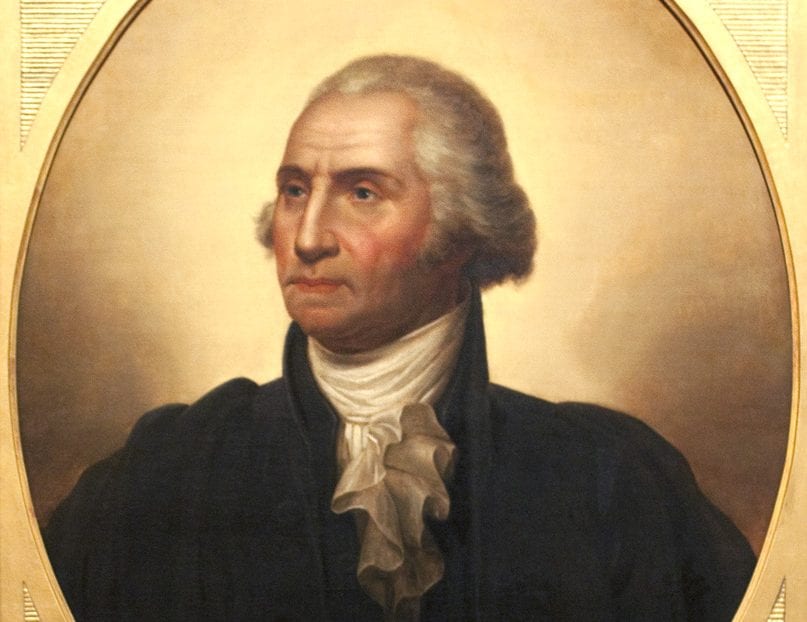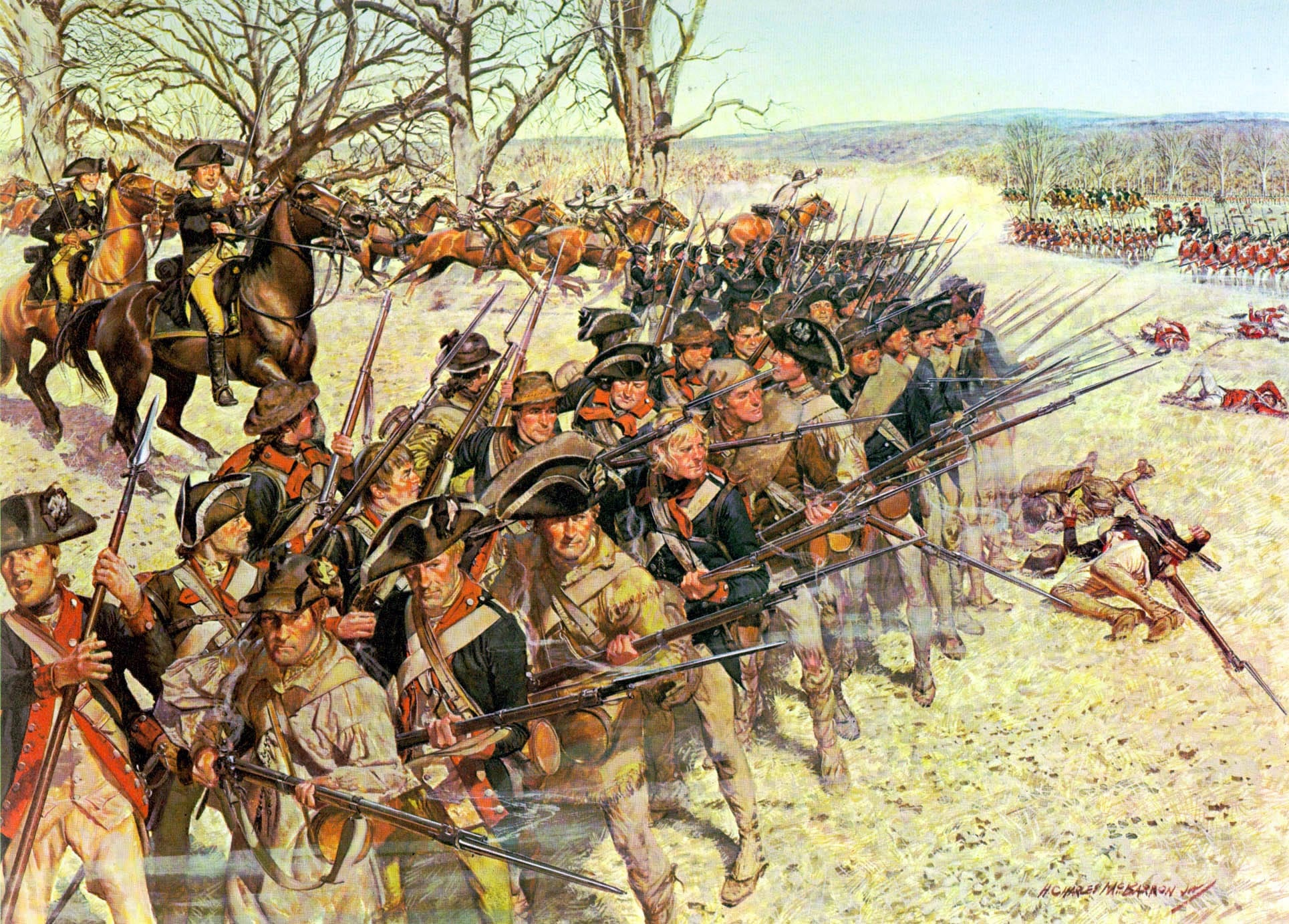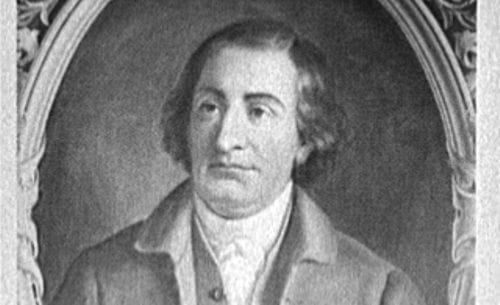


No related resources
Introduction
The fight with Britain having begun at Lexington and Concord in 1775, after a decade of growing division, in May 1776 the Continental Congress called on the states “to adopt such government as shall in the opinion of the representatives of the people, best conduce to the happiness and safety of their constituents in particular and America in general.” The Virginia House of Burgesses adopted a Declaration of Rights and a constitution a month later. Virginia’s Declaration was the first and became a model for other states, and for Jefferson’s draft of the Declaration of Independence a few weeks later. Included in this excerpt is the beginning of the Virginia Constitution (adopted June 29), which also anticipated the Declaration in its list of grievances against the king and Parliament and its conclusion that these grievances justified separation from Great Britain. Among the delegates in the Virginia Assembly were George Mason (1725–1792), the most important contributor, and twenty-five-year-old James Madison (1751–1836), who helped draft the section on the “free exercise of religion.” This in turn became the basis for Madison’s “Memorial and Remonstrance against Religious Assessments.”
The Virginia Declaration of Rights and the opening words of the Virginia constitution summarized the key ideas of the American Revolution that transformed it into a world historical event.
Source: W. W. Hening, Statutes at Large (Richmond: George Cochran, 1823), IX:109–119.
A DECLARATION OF RIGHTS made by the representatives of the good people of Virginia, assembled in full and free convention; which rights do pertain to them and their posterity, as the basis and foundation of government.
- THAT all men are by nature equally free and independent, and have certain inherent rights, of which, when they enter into a state of society, they cannot, by any compact, deprive or divest their posterity; namely, the enjoyment of life and liberty, with the means of acquiring and possessing property, and pursuing and obtaining happiness and safety.
- That all power is vested in, and consequently derived from, the people; that magistrates are their trustees and servants, and at all times amenable to them.
- That government is, or ought to be, instituted for the common benefit, protection, and security of the people, nation, or community; of all the various modes and forms of government, that is best which is capable of producing the greatest degree of happiness and safety, and is most effectually secured against the danger of maladministration; and that whenever any government shall be found inadequate or contrary to these purposes, a majority of the community hath an indubitable, unalienable, and indefeasible right to reform, alter, or abolish it, in such manner as shall be judged most conducive to the public weal.1
- That no man or set of men are entitled to exclusive or separate emoluments2 and privileges from the community, but in consideration of public services; which, not being descendible,3 neither ought the offices of magistrate, legislator, or judge to be hereditary.
- That the legislative and executive powers of the state should be separate and distinct from the judiciary; and that the members of the two first may be restrained from oppression, by feeling and participating the burdens of the people, they should, at fixed periods, be reduced to a private station, return into that body from which they were originally taken, and the vacancies be supplied by frequent, certain, and regular elections, in which all, or any part of the former members, to be again eligible, or ineligible, as the laws shall direct.
- That elections of members to serve as representatives of the people, in assembly, ought to be free; and that all men, having sufficient evidence of permanent common interest with, and attachment to, the community, have the right of suffrage, and cannot be taxed or deprived of their property for public uses without their own consent, or that of their representative so elected, nor bound by any law to which they have not, in like manner, assented, for the public good.
- That all power of suspending laws, or the execution of laws, by any authority, without consent of the representatives of the people, is injurious to their rights, and ought not to be exercised.
- That in all capital or criminal prosecutions a man hath a right to demand the cause and nature of his accusation, to be confronted with the accusers and witnesses, to call for evidence in his favor, and to a speedy trial by an impartial jury of twelve men of his vicinage,4 without whose unanimous consent he cannot be found guilty, nor can he be compelled to give evidence against himself; that no man be deprived of his liberty, except by the law of the land or the judgment of his peers.
- That excessive bail ought not to be required, nor excessive fines imposed, nor cruel and unusual punishments inflicted.
- That general warrants, whereby any officer or messenger may be commanded to search suspected places without evidence of a fact committed, or to seize any person or persons not named, or whose offense is not particularly described and supported by evidence, are grievous and oppressive, and ought not to be granted.
- That in controversies respecting property, and in suits between man and man, the ancient trial by jury is preferable to any other, and ought to be held sacred.
- That the freedom of the press is one of the great bulwarks of liberty, and can never be restrained but by despotic governments.
- That a well-regulated militia, composed of the body of the people, trained to arms, is the proper, natural, and safe defense of a free state; that standing armies, in time of peace, should be avoided, as dangerous to liberty; and that, in all cases, the military should be under strict subordination to, and governed by, the civil power.
- That the people have a right to uniform government; and therefore, that no government separate from, or independent of, the government of Virginia ought to be erected or established within the limits thereof.
- That no free government, or the blessing of liberty, can be preserved to any people, but by a firm adherence to justice, moderation, temperance, frugality, and virtue, and by frequent recurrence to fundamental principles
- That religion, or the duty which we owe to our Creator, and the manner of discharging it, can be directed only by reason and conviction, not by force or violence, and therefore all men are equally entitled to the free exercise of religion, according to the dictates of conscience; and that it is the mutual duty of all to practice Christian forbearance, love, and charity toward each other.
Virginia Constitution
The CONSTITUTION or FORM of GOVERNMENT, agreed to and resolved upon by the delegates and representatives of the several counties and corporations of Virginia.
I. WHEREAS George the Third, King of Great Britain and Ireland, and Elector of Hanover, heretofore entrusted with the exercise of the kingly office in this government, hath endeavored to pervert the same into a detestable and insupportable tyranny, by putting his negative on laws the most wholesome and necessary for the public good;
By denying his governors permission to pass laws of immediate and pressing importance, unless suspended in their operation for his assent, and, when so suspended, neglecting to attend to them for many years;
By refusing to pass certain other laws, unless the persons to be benefitted by them would relinquish the inestimable right of representation in the legislature;
By dissolving legislative assemblies repeatedly and continually, for opposing with manly firmness his invasions of the rights of the people;:
When dissolved, by refusing to call others for a long space of time, thereby leaving the political system without any legislative head;
By endeavoring to prevent the population of our country, and, for that purpose, obstructing the laws for the naturalization of foreigners;
By keeping among us, in times of peace, standing armies and ships of war;
By affecting to render the military independent of, and superior to, the civil power;
By combining with others to subject us to a foreign jurisdiction, giving his assent to their pretended acts of legislation;
For quartering large bodies of armed troops among us;
For cutting off our trade with all parts of the world;
For imposing taxes on us, without our consent;
For depriving us of the benefits of trial by jury;
For transporting us beyond seas, to be tried for pretended offences:
For suspending our own legislatures, and declaring themselves invested with power to legislate for us in all cases whatsoever;
By plundering our seas, ravaging our coasts, burning our towns, and destroying the lives of our people;
By inciting insurrections of our fellow subjects, with the allurements of forfeiture and confiscation;
By prompting our negroes to rise in arms among us, those very negroes whom, by an inhuman use of his negative, he hath refused us permission to exclude by law;
By endeavoring to bring on the inhabitants of our frontiers the merciless Indian savages, whose known rule of warfare is an undistinguished destruction of all ages, sexes, and conditions of existence;
By transporting, at this time, a large army of foreign mercenaries, to complete the works of death, desolation, and tyranny, already begun with circumstances of cruelty and perfidy unworthy the head of a civilized nation;
By answering our repeated petitions for redress with a repetition of injuries;
And finally, by abandoning the helm of government, and declaring us out of his allegiance and protection.
By which several acts of misrule, the government of this country, as formerly exercised under the crown of Great Britain, is TOTALLY DISSOLVED.
II. We therefore, the delegates and representatives of the good people of Virginia, having maturely considered the premises, and viewing with great concern the deplorable condition to which this once happy country must be reduced, unless some regular, adequate mode of civil polity is speedily adopted, and in compliance with a recommendation of the General Congress, do ordain and declare the future form of government of Virginia. . . .
Constitution of Virginia
June 29, 1776
Conversation-based seminars for collegial PD, one-day and multi-day seminars, graduate credit seminars (MA degree), online and in-person.











